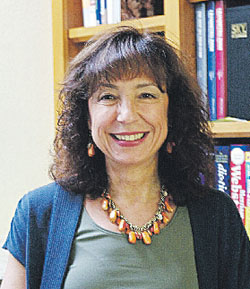
| ||||||
Skidmore College in New York is an excellent liberal arts college which allows students to combine a business major with a second liberal arts major, including economics, government or one of three foreign languages (French, German or Spanish). Skidmore also offers a business minor. With 2,600 undergraduates, Skidmore is neither too small nor too large to offer personalized attention, and has an 83 percent four-year graduation rate, about the same as more selective institutions. Skidmore is also a member of the Liberal Arts Career Network (http://liberalartscareers.org/about-us/consortium-member-schools/) a consortium of 37
selective liberal arts colleges that share job and internship postings, including many positions in business.
Bucknell University in Pennsylvania is a larger liberal arts college with around 3,600 undergraduates that also offers an excellent business program. Bucknell grants traditional as well unique
bachelor's degrees in business, including a major in markets, innovation and design and a five-year program in management and engineering. Nearly 90 percent of Bucknell students who enter as freshmen graduate on time. The university also has very loyal alumni. More than 30 percent contribute to the school each year.
Babson College in Massachusetts is a smaller school (around 2,000 undergraduates) with a focus on entrepreneurial thinking within all of the business disciplines, and also offers half of the education curriculum in the liberal arts, making it an especially well-balance college for students who wish to major in business but not let go of a liberal arts component. Babson's curriculum is a blend of traditional classes combined with problem-solving exercises in how to launch a small business (profits going to charity) and consult on projects with clients. Internships begin as early as the freshman year. Money Magazine rated Babson the second-best college in the country in its most recent college rankings. Over 80 percent of the students who enter Babson as freshmen graduate within four years, and nearly 10 percent of the graduates in the Class of 2015 had started their own firms before or shortly after they had completed their degrees.
But while a blend of business and the liberal arts is a great path to career success, many college students prefer to attend a business school within a college or university setting. They often enter a university's undergraduate business school as freshmen, as opposed to being designated as "pre-business" students before declaring a major.
The University of Maryland-College Park has one of the best undergraduate business programs available at a large university, especially for budding entrepreneurs. This university of 27,000 undergraduates also boasts one of the finest honors programs in the country, including one in the Entrepreneurship and Innovation Honors Program. The University of Maryland-College Park also has one of the very best career development centers among the larger research universities. Entry level hiring professionals ranked Maryland eighth among public and private research universities, according to Wall Street Journal survey conducted in 2010 (http://www.wsj.com/articles/SB10001424052748704554104575435563989873060). More than two-thirds of Maryland undergraduates earn their bachelor degrees within four years, an excellent performance for a state university.
Fordham University in New York, with around 7,900 undergraduates, also offers many innovative programs. These include an applied accounting and finance track as well as a consumer insights track within marketing major. Fordham offers the added advantage of being located in New York City, with campuses in Manhattan and the Bronx. Over three quarters of Fordham students who enter as freshmen finish on time.
Prospective business students might also want to check out cooperative education that alternates periods of paid full-time employment with full-time attendance in classes. Northeastern University in Boston (with about 13,500 under-graduates) has one of the largest cooperative education programs in the country. Students have the option to do co-op over four years, with two six-month assignments, one each during the sophomore and junior year, or over five years, taking a third six-month assignment with an employer. Most students choose to go five years; nearly 80 percent of those who enter as freshmen graduate by then. Each year Northeastern hosts more than 250 career events, and posts positions from over 3,000 employers. More than 90 percent of NEU graduates find work or attend graduate or professional schools full-time within nine months after graduation.
Whether you choose a quality liberal arts college or a specialized business school, the outcome can be the same: a very rewarding education and business career.
Reach the reporter at:
